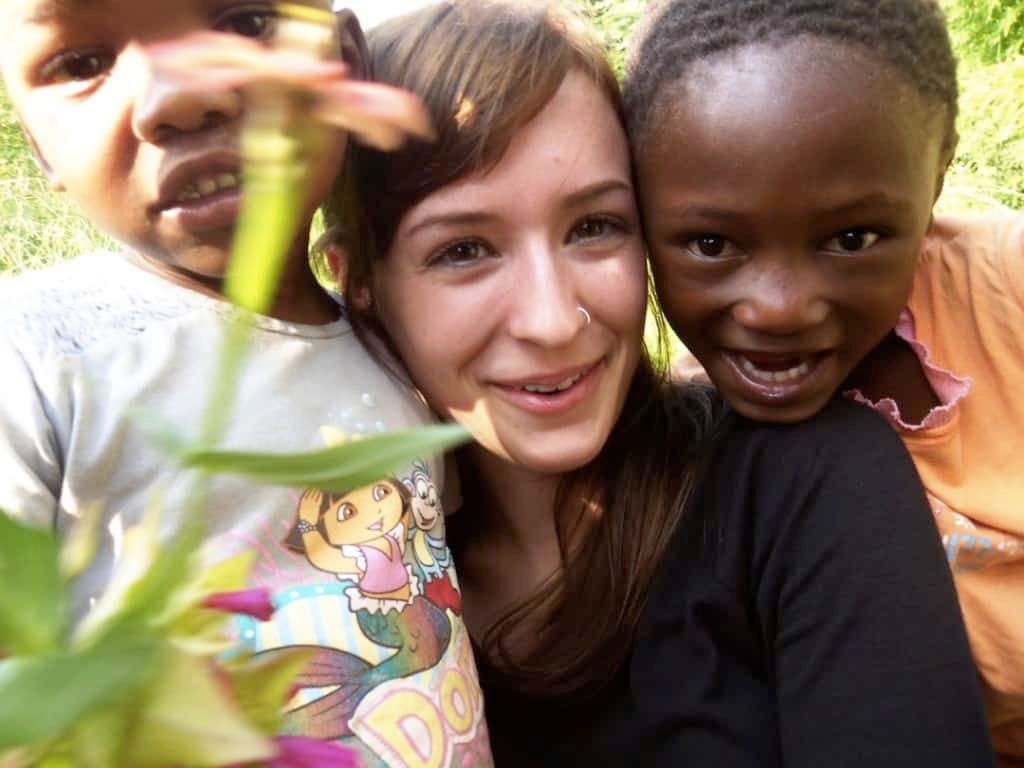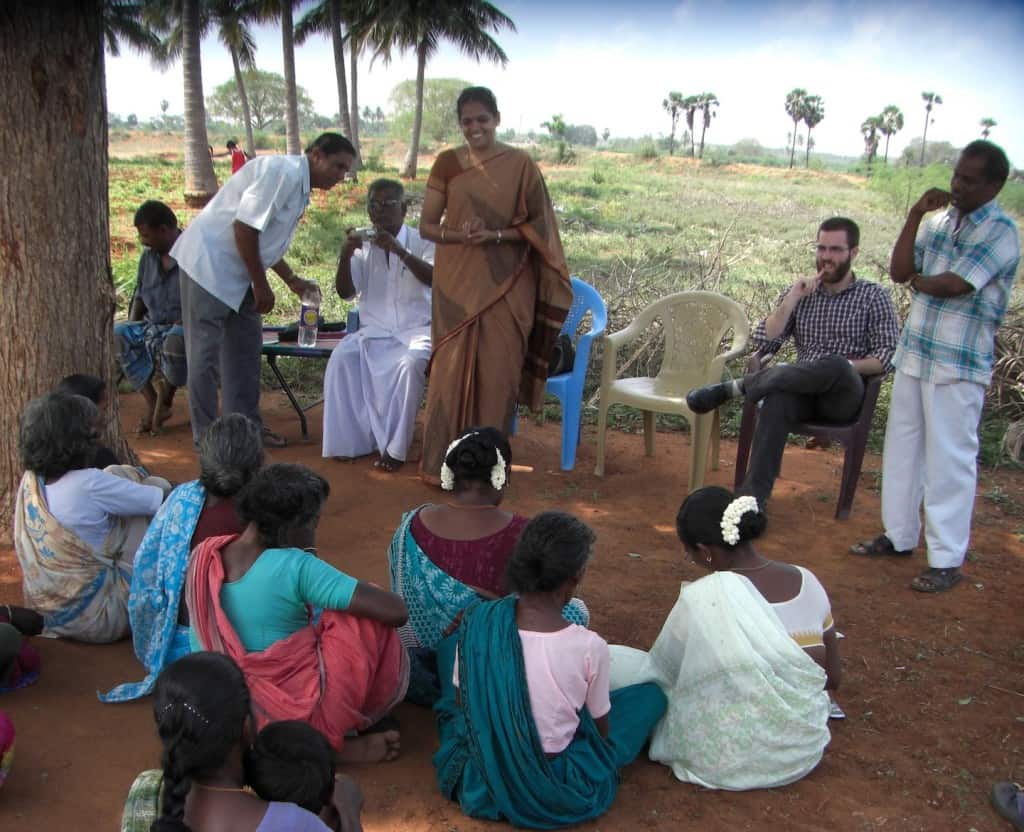During the first week in her field placement, MSSW student Christy Camp found herself hiking to the top of a mountain with her supervisor and members of her supervisor’s family. Once the group reached the top, they stopped at a cemetery and sat around a pile of rocks called the “Wishing Pile.” They all made wishes for each other, adding a new rock for each wish. “It was a beautiful and intimate introduction into the family and the village,” said Christy.

Christy’s field placement was with a community development trust in South Africa, a small village that houses and educates children orphaned by HIV/AIDS, and gives poor and displaced adults a home and a chance for a better life.
As the world gets more inter-connected, social workers are increasingly bringing their unique skills, flexible approaches to problem solving, and values of social justice and empowerment to international settings. The social work perspective, moreover, provides unique strengths to discussions and actions around global challenges such as poverty, human trafficking, children deprived of parental care, and HIV/AIDS.
The School of Social Work has tackled this international dimension in part by developing field placements outside the United States, in countries including India, Germany, Costa Rica, South Africa, and New Zealand. In addition to the integration of theory and practice that is at the core of any field experience, students in international placements are fully immersed in a different culture and have to learn to navigate systems sometimes radically different to those at home.
The experience can be at times intense. Christy, for example, interacted daily with children whose parents had died of AIDS, and who themselves were HIV positive. “Everything was magnified at the village,” Christy said. “Life, death, sickness, joy, confusion, sadness, clarity and happiness are all experienced in a day. Being part of this unique community has taught me so much.”
Students also enjoy the opportunity of taking core concepts and practices and applying them to unfamiliar settings. One of the most satisfying moments of MSSW student Kyle Pitzer’s field experience, for instance, was when he conducted a workshop for the staff members of the agency at which he was placed. Kyle’s workshop, which gave tools to staff to improve the writing of case studies, is a good example of typical macro social work practice, and would have been familiar to any of his classmates in the Community & Administrative Leadership* concentration.
The setting of Kyle’s workshop, however, was not that typical. His field placement was in southern India, with an organization that utilizes a rights-based approach to carry out disaster relief and development work in rural communities.

BSW students Sonia Alvarez and Adrianna Linares were in Costa Rica, placed with an organization that provides services to women and children who are victims of domestic violence. “Both students experienced great personal and professional growth from being immersed in a different culture,” said Vicki Packheiser, Assistant Dean for Undergraduate Programs and faculty liaison for the Costa Rica placement.
International social work can also involve serving US populations abroad. This was the experience of MSSW student Meghann Flynn, who was placed at a military medical center in Germany. “It was humbling to be able to witness and become a part of a motivated and dedicated military hospital community overseas,” said Meghann. “Essentially, I was living in three cultures at once: military, American, and German. I feel very fortunate to have had the chance of this international experience as part of my social work education at UT.”
For a glimpse of Meghann’s experience, see this video produced by Tech. Sgt. Burt Traynor for the Defense Video & Imagery Distribution System (DVIDS), a public service operated by the Department of the Army in support of all branches of the U.S. military.
To learn more about opportunities for international social work at the school, visit these pages.
* In 2016 the CAL concentration changed to Administrative Policy and Practice (APP).


